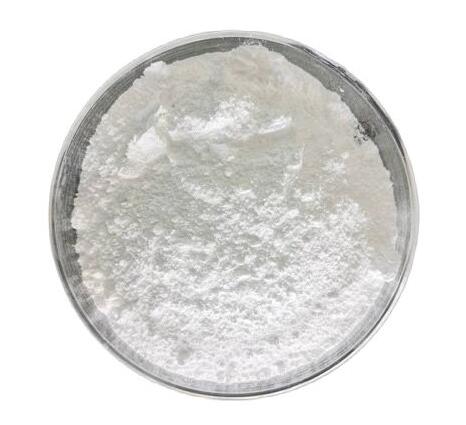Zinc carbonate is a carbonate of zinc, chemical formula ZnCO3, white fine amorphous powder, odorless. It is the main component of zinc rhodochrosite, formed in the secondary mineral weathering or oxidation zone of zinc-bearing deposits, sometimes as a substitute for carbonate rock bodies that may constitute zinc ore. In nature it forms smithsonite minerals, in which it can exist alone or with other elements such as cobalt or copper, giving it a purple or green color, respectively.ZnCO3 is practically insoluble in water, but it dissolves readily in dilute acids because carbonate ions form carbonic acid (H2CO3) in acidic media, which is then converted to carbon dioxide gas and water. It is used as an antiseptic for animal wounds and as a feed additive to avoid diseases caused by zinc deficiency. It acts as a delayed combustion when certain fibers, plastics and rubbers come in contact with fire. It can safely separate toxic arsenic minerals from other rocks. It has been used in toothpastes to restore the dentin of teeth that have been whitened.

Zinc carbonate is mainly produced by the complex decomposition method, that is, the raw material containing zinc or zinc oxide acts with sulfuric acid to obtain a crude zinc sulfate solution, which is oxidized by potassium permanganate to remove impurities such as iron and manganese, and then zinc powder is added, and impurities such as nickel, copper and cadmium can be removed by stirring. Then secondary oxidation with potassium permanganate is carried out to remove small amounts of manganese and iron. The refined zinc sulfate solution, and soda ash solution to generate basic zinc carbonate, control the reaction temperature 46 ℃, pH 6.8, free alkali 0.4% ~ 0.5%. The pulpy material obtained from the complex decomposition is filtered and the filter cake is dried at 100°C until the moisture content is below 2.5%, and then finely ground and sieved to produce the finished alkaline zinc carbonate.
Molecular weight: 125.4 g/mol
Physical state. Colorless solid or white crystals. Diamond-shaped crystals.
Melting point. At 140 ºC, it decomposes without melting.
Solubility. Almost insoluble in water: 0.000091 g/100 g H2O at 20 ºC. Soluble in dilute acids, bases and ammonium solutions. Insoluble in ammonia, alcohol and acetone.
Density: 4.398 g/cm3 at 20°C.
Chemical properties of zinc carbonate
It reacts with acids to form carbon dioxide.
It is not flammable. When heated to decomposition, it produces zinc oxide and carbon dioxide, but emits carbon monoxide (CO).
The zinc carbonate process is highly environmentally friendly and efficient due to its low heavy metal content (5 PPM or less). Environmental protection is guaranteed and, in addition, there are economic benefits.
With the production facilities, zinc carbonate can be efficiently processed with materials such as stainless steel and copper, ensuring that the product enters the market free of impurities.
To ensure that the product is dried without homogeneity, the hot air drying method can be used. The products of this range will have good flowability, highly homogeneous fineness and a specific high surface.
TIANJIN DYNAMIC BIO-TECHNOLOGY CO., LTD is a professional manufacturer of animal feed additives, please contact us if you have any questions in this regard.
Previous: china hpmc cellulose
Next: Chequered Floor Plate
Copyright:@2020-2021
Comments Please sign in or sign up to post.
0
0 of 500 characters used